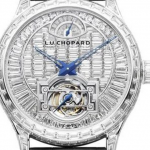
Renaissance Technologies, the hedge fund and the “golden master” of many U.S. politicians, eventually struck a settlement with the IRS, admitting about $7 billion in back taxes and fines, even to the long-retired founder.
On September 2nd the Wall Street Journal, citing a statement from the hedge fund Renaissance Technologies LLC, said its executives would pay about $7bn in back taxes and fines on their own, in a settlement with the US Internal Revenue Service.
This is probably the largest tax settlement in history.The most expensive tax settlement agreement
There is also a penalty for retirement
“We have been involved in years of litigation with the IRS, and in the process we have raised the legitimacy of Medallion’s tax report.” “But the company’s board of directors finally decided to agree to a settlement with THES because it was in the best interests of our investors,” Renaissance Ceo Peter Brown wrote in a letter to Medallion investors last week. ”
The dispute is understood to be linked to Renaissance Technologies’ prestigious Medallion fund. The fund converted short-term trading proceeds into long-term profits between 2005 and 2015. The fund’s dispute with the IRS over whether investors should pay tax on portfolio returns at higher short-term capital gains rather than lower long-term capital gains on the options themselves.
The dispute has been closely watched by the financial and political worlds because of the huge sums involved and the fact that senior executives of Renaissance technology have been the “golden masters” of america’s leading politicians.
One fund investor said the company had a 76 per cent return under its name. However, the hedge fund’s external funds will underperform in 2020. From December 25, 2020, The Renaissance International Global Equity Fund (RIDGE) is down 22.62 per cent year-to-date. Renaissance International Overthrew Alpha fell 33.58 percent over the same period.
James Simmons, the fund’s founder, has been a longtime supporter of the Democratic Party. He retired as chairman on January 1 this year, but will still pay back the taxes associated with the proceeds of the deal, as well as a $670m settlement.
most expensive tax settlement agreement
“Basket Options”
The fine is widely believed to be related to Medallion’s long-standing investment approach, and the “basket option” is its profit-making strategy.
Medallion usually holds short-term investments, and some deals are done almost within seconds. In 2005, the fund’s executives began favouring “basket options”. This is a financial instrument created by banks, whose value is linked to the performance of a particular basket of stocks. Instead of buying stock, Medallion bought options that represented stock returns, and the company also instructed banks on how to trade the underlying stocks.
Basket options offer many benefits, such as allowing Medallion to borrow large amounts of money to invest in the market. This is a boon for the fund company because the short-term capital gains ratio is higher than the long-term capital gains rate of the option itself.
Renaissance Technologies’ legal advisers approved the move a few years ago, but it has since come under scrutiny. In 2014, a U.S. Senate subcommittee report said the actions had allowed Renaissance executives to avoid more than $6 billion in taxes. The report said the company had “abused” its complex structure and achieved “unreasonable tax savings”.
In recent years, some hedge fund managers have also paid huge amounts of tax, including John Paulson’s $1bn tax bill, but the money has not resolved tax disputes with the government. Steve Rosenthal, a senior fellow at the Center for Tax Policy, said renaissance tax fines would be a good “precedent” if the IRS had more resources to handle complex cases.



